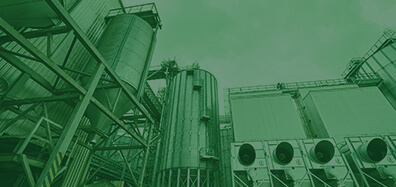Ozone (O3) Sensor 50 PPM

Prana Air provides best-in-class electrochemical Ozone O3 sensor and monitoring systems that can be used to precisely and accurately determine the concentration of ozone in the area. Monitoring is the primary shield against ozone’s ill effect on our health. Electrochemical sensors are the industry standard for monitoring ozone. In this type of sensor electric current produced by the reaction of the gas sample with the electrolyte is measured to determine the concentration of ozone in the air. The direction of flow of the electron created an electric current which is proportional to the concentration of gas.
Ozone is a layer present in the stratosphere of the atmosphere. Ozone is a protective layer that protects from the harmful ultraviolet radiation coming into earth. However, the ozone layer that we breathe at ground level is hazardous. Ozone gas consists of three atoms of oxygen, colorless to pale blue in color. The odor of ozone is pungent and highly combustible. The major source of ozone presence at ground level is ozone layer breaking. Other source includes automobile emissions, construction, power plants, extraction and operation of oil, industrial boilers, chemical plants, coal, and gasoline burning. Its monitoring not only helps in determining air quality but also to warn if there is a high quantity where it should not have been.

The compactness of the sensor allows its use in stationary devices as well as handheld mobile devices.

The ozone sensor comes with 10 years of operational life.

The sensor is highly responsive and gives a response in less than 15 seconds.

The demand for energy by the sensor is very low (0 mW at 0 mV bias). This decreases the overall consumption of energy.

Calibration is done individually for devices with sensors to give the highest accuracy.

The compliance of the sensor against ROHS (Restriction of Hazardous Substances) explains no use of toxic/ hazardous materials in the making of sensors.
Ozone sensors provided by Prana Air work on electrochemical gas sensing techniques. The technique uses three principle components a working electrode, a counter electrode, and an ion conductor. The ion conductor is a bridge between two electrodes. The passing of gas through the senor results in the current generation between electrodes and this generated current is directly proportional to the concentration of Ozone in the environment.
The directional flow of electrons through the wire creates an electric current that is directly proportional to the concentration of gas. The gas sensor works by measuring this current flow between the two sensors.

The sensor calibration determines the instrumental accuracy and measurement traceability. The comparison of standard measurement with instrumental measurement is calibration. The sensor is exposed to O3 in the range of interest and the NIST standard is used for reference. Standard environmental conditions like 23 + 3oC temperature, 50 + 15% relative humidity, 0.9-1.1atm pressure and air velocity of 0.05m/s were used during calibration.


| Parameter | Value |
|---|---|
| Range of measurement | 0 to 50 ppm |
| Resolution | 0.01 ppm |
| Repeatability | < +/- 3 % of reading |
| Response Time | Less than 15 seconds |
| Sensitivity (nA/ppm @ 5ppm) | -60 +/- 10 nA/ppm |
| Expected Operating Life | > 5 years (10 years @ 23+/-3C; 40+/-10% RH) |
| Operating Temperature Range | -300 to +500C |
| Working Humidit | 0-100% RH |
| Power Supply | 10-50 uW |

Air Quality
Monitoring

Industrial Safety
Monitoring

Air Purification
Control
The user has to option to choose either the sensor only or both sensor and board. Prana Air has a USB digital board with a microcontroller.
The standard environmental conditions for sensor calibration used are 23 + 3oC temperature, 50 + 15% relative humidity, 0.9-1.1atm pressure and air velocity of 0.05m/s. The alteration in environmental conditions may affect the sensitivity of the sensor but is easily compensated.
The sensor has 6 months warranty only on the manufacturing devices.
The sensor has to be connected through a USB microcontroller and digital board to UART Bridge.
Ozone is both an air pollutant and Green House gas. The depletion of the protective ozone layer is causing the increased heating of the earth’s surface. The ground-level ozone is formed due to a photochemical reaction between VOCs and NOx in presence of heat and sunlight.
Use Prana Air’s monitors to continuously monitor the levels of ozone, avoid spending too much time outside when the concentration is high, and avoid continuous travel and trips.
According to NIOSH and OSHA, the recommended limit of exposure is 0.1ppm or 0.2 mg/m3. However, the levels higher than or equal to 5ppm are considered hazardous and dangerous to life. (NIOSH).
Adverse effects of ozone exposure can include severe lungs infection attacking the neural, epithelial, and immune cells, eye irritation, conjunctivitis, inflammation in tissues of the lungs, and reduced inability to breathe.
Ozone levels elevate in the afternoon because the exhausted fumes from the morning rush hour have reacted with sunlight. People working in power points, industrial boilers, oil and petroleum refinery, and chemical plants are exposed to a high level of ozone.
Please help us know what requirements you have.
Our team will contact you very soon.
Looking for Ozone sensor?